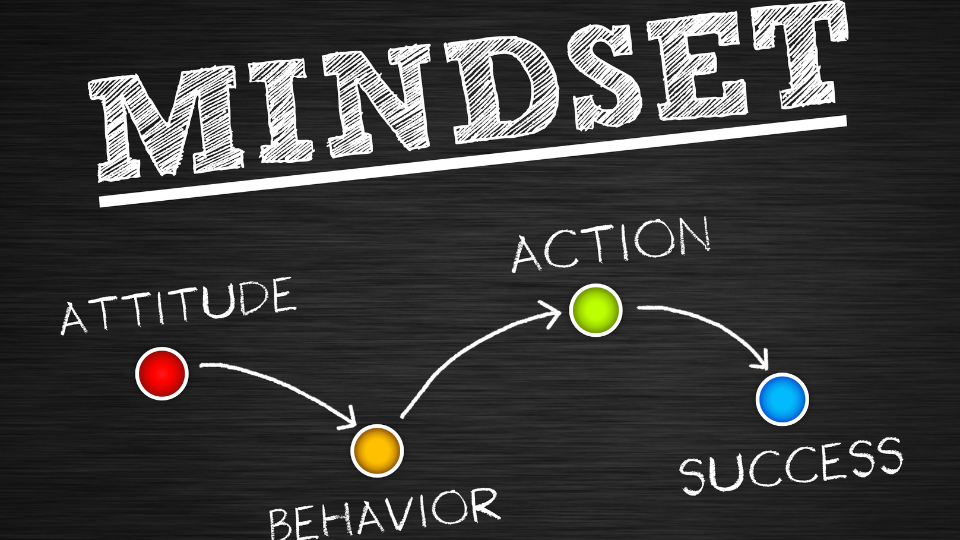In the realm of education, understanding the cognitive factors in study is crucial for both learners and educators. Cognitive factors encompass a range of mental processes that influence how individuals acquire, process, and retain information. These factors play a significant role in shaping learning experiences and outcomes, making it essential to explore their implications in academic settings. As students navigate through various subjects and challenges, recognizing the cognitive elements at play can lead to more effective study strategies and improved academic performance.
This comprehensive review aims to delve into the intricacies of cognitive factors in study, examining their definitions, roles, and impacts on learning. Furthermore, this review will highlight practical strategies to enhance cognitive factors and address challenges faced by learners. Ultimately, a deeper understanding of cognitive factors can empower students to optimize their learning potential and achieve academic success.
Cognitive factors in study refer to the mental processes that influence how individuals learn, understand, and retain information. These factors encompass a range of cognitive processes, including perception, attention, memory, and problem-solving abilities. For instance, metacognition, which refers to one’s awareness and control over their own learning processes, significantly impacts how effectively students can engage with material. By understanding their cognitive strengths and weaknesses, learners can adopt strategies that enhance their study habits and improve overall academic performance.

Cognitive factors play a pivotal role in shaping how individuals learn and process information. For instance, attention is a critical cognitive factor that influences the ability to focus on relevant stimuli while filtering out distractions. This is particularly evident in classroom settings where students must concentrate on lectures or discussions.
Memory, another essential cognitive factor, allows learners to retain and recall information, which is vital for academic success. Techniques such as mnemonic devices or spaced repetition can enhance memory retention, demonstrating the practical application of cognitive factors in learning environments.

Moreover, reasoning and problem-solving are cognitive processes that enable learners to analyze information, draw conclusions, and apply knowledge to new situations. For example, when students engage in group discussions or collaborative projects, they often encounter cognitive conflict, which can lead to deeper understanding and adaptation of concepts. Additionally, the use of technology in education, such as interactive learning platforms, can facilitate cognitive engagement by providing opportunities for exploration and experimentation.
These examples illustrate how cognitive factors not only influence individual learning experiences but also contribute to the overall effectiveness of educational practices.
Cognitive factors play a pivotal role in shaping academic performance, acting as the underlying mechanisms that influence how students process information, retain knowledge, and apply what they have learned. Research indicates that cognitive abilities, such as memory, attention, and problem-solving skills, are strongly correlated with students’ academic success.
For instance, studies have shown that students with higher general cognitive abilities tend to achieve better grades and perform well on standardized tests. This correlation underscores the importance of understanding cognitive factors as they provide insights into the potential barriers and facilitators of effective learning.
Moreover, cognitive factors such as goal-setting, mindset, and internalized motivation significantly impact students’ engagement and persistence in their studies. A growth mindset, for example, encourages students to view challenges as opportunities for growth, leading to increased effort and resilience in the face of academic difficulties.
Additionally, the ability to set specific, achievable goals can enhance motivation and focus, further contributing to improved academic outcomes. However, it is essential to recognize that while cognitive factors are critical predictors of academic performance, they do not operate in isolation; affective factors, such as emotional well-being and social support, also play a significant role in shaping students’ learning experiences. Thus, a comprehensive understanding of academic performance must consider the interplay between cognitive and affective factors.
Enhancing cognitive factors in study requires a multifaceted approach that integrates strategies tailored to individual learning styles and preferences. One effective method is the incorporation of metacognitive strategies, which involve teaching students to think about their own thinking processes. This can include self-regulation techniques such as goal setting, self-monitoring, and reflecting on learning experiences. By fostering an awareness of their cognitive processes, students can adapt their study habits to improve comprehension and retention of information, ultimately leading to better academic performance.
Another strategy to enhance cognitive factors is the use of technology to facilitate deeper learning. Tools such as interactive learning platforms, educational apps, and online resources provide students with opportunities for active engagement and collaboration. For instance, utilizing thinking maps can help students visually organize information, making complex concepts more accessible and easier to grasp.
Additionally, integrating cognitive conflict resolution techniques encourages students to confront and resolve misunderstandings. This process promotes critical thinking and fosters a deeper understanding of the material, as students learn to analyze and clarify their misconceptions.
By combining metacognitive strategies, technological tools, and conflict resolution methods, educators can create a supportive learning environment that enhances cognitive factors. This holistic approach not only improves academic success but also equips students with the skills necessary for lifelong learning.
Fostering a growth mindset and internalized motivation are powerful strategies to enhance cognitive factors in study. A growth mindset, which involves the belief that abilities can be developed through dedication and hard work, encourages resilience and a willingness to embrace challenges. By shifting students away from a fixed mindset, which often promotes a fear of failure, educators can create an environment where mistakes are seen as opportunities for growth.

Additionally, nurturing internalized motivation—where students pursue knowledge for its intrinsic value—can lead to deeper engagement and better retention of information. Strategies such as connecting learning material to students’ interests, setting meaningful goals, and celebrating effort over results can help cultivate both a growth mindset and intrinsic motivation, significantly enhancing their cognitive abilities and academic success.
One significant challenge in addressing cognitive factors is the variability in individual cognitive abilities, which can lead to inconsistent learning outcomes. Students may possess differing levels of prior knowledge, motivation, and cognitive strategies, making it difficult to implement a one-size-fits-all approach.
Cognitive overload occurs when students are presented with too much information at once, which can lead to mental blocks, further complicating their ability to process and retain knowledge effectively. This challenge is particularly pronounced in complex subjects, such as STEM fields, where the interplay of cognitive factors can significantly impact student performance.
Another obstacle lies in the assessment and feedback mechanisms used in educational settings. Feedback that is overloaded, unspecific, or unfocused can exacerbate cognitive challenges rather than alleviate them. This often leaves students confused and less likely to engage with the learning material.
Educators may have limited knowledge of the cognitive factors affecting their students, leading to ineffective teaching strategies. Without tailored interventions, students may experience disengagement and frustration, ultimately impacting their academic performance.
To overcome these challenges, understanding and addressing cognitive factors is crucial for fostering an effective learning environment. Tailored teaching strategies and personalized interventions can help mitigate these issues, promoting better academic outcomes and student engagement.
In conclusion, understanding cognitive factors in study is essential for both educators and learners. These factors, which include attention, memory, and problem-solving skills, play a pivotal role in how effectively individuals absorb and retain information. By recognizing the significance of these cognitive elements, we can develop more effective teaching strategies and learning environments that cater to diverse cognitive profiles. Moreover, addressing cognitive factors not only enhances academic performance but also fosters a deeper understanding of the material, leading to lifelong learning.
As we move forward, it is crucial to continue exploring the intricate relationship between cognitive factors and study habits. By prioritizing cognitive development in educational settings, we can empower students to reach their full potential and adapt to the ever-evolving demands of the modern world. Ultimately, a comprehensive understanding of cognitive factors in study will pave the way for more effective learning experiences and improved academic outcomes.